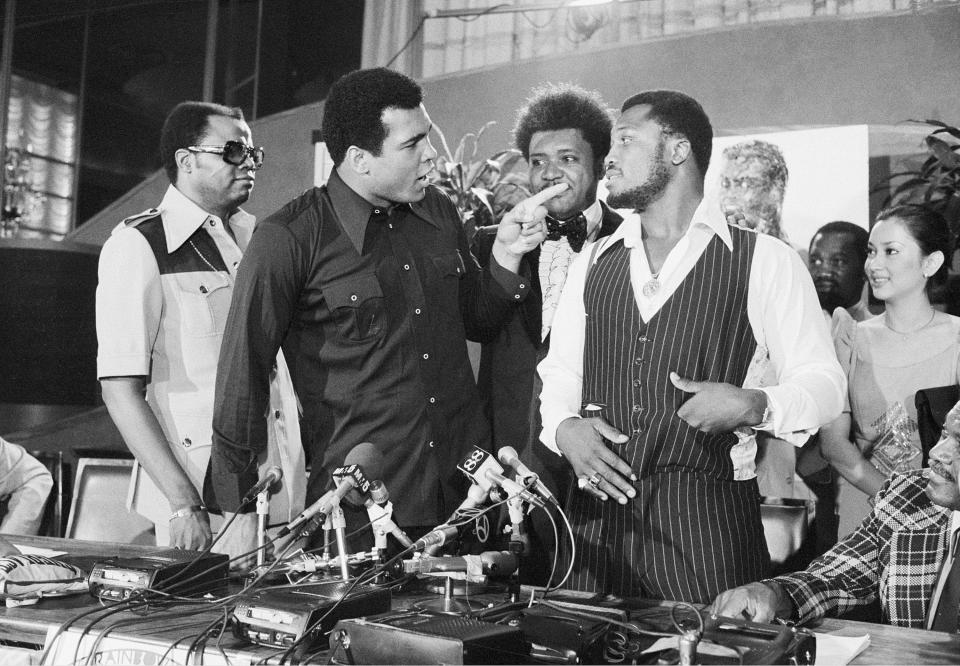Will the NFL soon be relegated to the has-been status of boxing and horse racing?
In 1938, one of every three Americans, as many as watch the Super Bowl, was glued to the radio, listening as a scrappy, undersized horse named Seabiscuit defeated the heavily favored War Admiral in a two-horse showdown in Baltimore. Twelve years before that, Jack Dempsy and Gene Tunny drew 120,000 boxing fans to Philadelphia for a heavyweight boxing bout, more than has ever witnessed an SEC football game in person.
If Oleksandr Oleksandrovych Usyk and Itzforever are household names in your family congratulations, you are in a very small American minority capable of naming both the current heavyweight boxing champ and the 2023 Horse of the Year.
This would have flabbergasted sports fans as late as the early 1970s, when Ali and Frazier were in the middle of their epic trio of fights and Secretariat was the best athlete of any species.

Boxing, something of a violent game of chess, was known as the sweet science. Show tunes were written about horse racing. It was inconceivable that either could become a niche sport, popular only on a couple of days of the year, if that.
Will football soon be relegated to has-been status?
As we sit here today, it seems just as unlikely as it would have a century ago that our favorite sport of football could be relegated to has-been status.
Consider that even the NFL draft, which quite frankly is televised chloroform, drew 320,000 people to Kansas City last year, the attendance equivalent of 15 average Major League Soccer games.
So what’s to worry about? Plenty.
By welcoming in gambling with open arms, football has indeed recruited an energized fan base. Except these are fans of betting, more than they are fans of football. It may be more fun than betting on soccer — how much fun can it be when the over/under of every match is 1 — but it should be remembered that gambling couldn’t save horse racing.
There will be an inevitable backlash against gambling once fans figure out that parlays are a fool’s game, and social scientists figure out the damage that problem gambling is doing to our well-being.
Hagerstown projects: Hagerstown election, major construction projects expected to wrap up in 2024
Transfer portal, rotating rosters dim luster of college sports
Already, the mad rush to sports analytics, the notion that situational football problems can be solved with math, feels stale. It is notable how often “ESPN analytics” are wrong. And all the coaches who were once widely praised for going for it on fourth and two on their side of the field have now been fired for failing to win any actual games.
Reducing sports to numbers fails to recognize that sports relies primarily on emotions, both on the field and in the stands. It’s why we still go to the stadium when our team is 2-10.
But college seems intent on destroying this bond. In basketball, good players put in one detached season before vamoosing for the NBA. So teams like Kentucky and Duke are far less compelling without the chance for people beyond their respective campuses to get to know their players over the course of four years.
Now, the college football transfer portal is scrambling rosters every season, and greedy agents are telling kids to sit out of bowl games, so as not to risk injury. Tulane (!) had 11 student-athletes sit out its bowl game under the delusion they’ll one day be starting for the Baltimore Ravens.
So why not sit out the last game of the regular season if you’re worried you might get hurt? Or the final two games? Why play at all?
More Tim Rowland: From driving to the NFL, the fun has gone out of nearly everything
NFL shows some troubling parallels to boxing
In the NFL, there are some unsettling early parallels to boxing, which summarily dispatched its golden goose by going to a pay-per-view model. This created some mesmerizing paydays for a relative few, but the sport cut off its seed corn, both in the form of its working-class fan base and young athletes from poor families who might watch and be inspired to try the sport for themselves.

Boxing milked its existing stars and fans dry, but no new ones came along to take their places and within a generation of the Thrilla in Manila, boxing in America was dead.
Which is what the NFL has to lose by playing footsie with streaming services like Amazon’s Prime and NBC’s Peacock. For the first time this season, an NFL playoff game will not be accessible on traditional television, all so NBC can try to extort fans into supporting the lifeless corpse of its streaming division.
The NFL would certainly stand to make an initial fortune selling its product to multiple streaming outlets.
And a great product it is. But not so great that fans will pay for six or eight different broadcast outlets to see all the games. This is the greatest threat to any sport — you never want to give fans the opportunity to realize they can live without it.
Tim Rowland is a Herald-Mail columnist.
This article originally appeared on The Herald-Mail: NFL losing luster as obsession with gambling, numbers takes over

